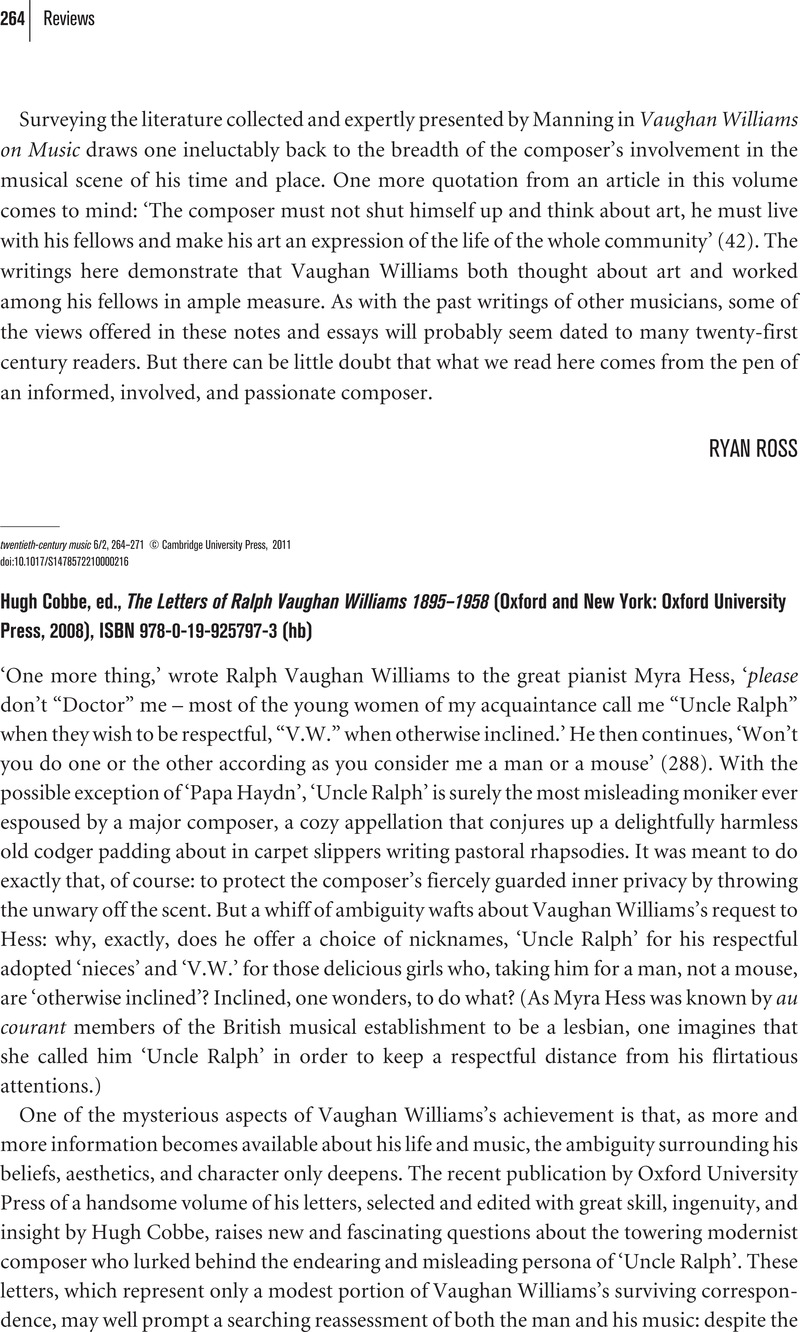No CrossRef data available.
Published online by Cambridge University Press: 13 April 2011

1 Williams, Ralph Vaughan, ‘Who Wants the English Composer?’, Royal College of Music Magazine 9/3 (1912), 11–15.Google Scholar
2 Williams, Ursula Vaughan, R.V.W.: A Biography of Ralph Vaughan Williams (Oxford: Oxford University Press, 1964), 138Google Scholar .
3 Ursula Vaughan Williams, R.V.W., 29.
4 The devout wife of Vaughan Williams's great uncle, Charles Darwin, suffered agonies at the fear that she would be eternally parted from her husband after death after he published his wicked book, The Origin of Species. As for Great Uncle Charles himself, the great evolutionist once wrote to an importunate correspondent in plain terms much like those of his musical great-nephew: ‘I never gave up Christianity till I was forty years of age […]. It is not supported by evidence.’ Quoted in MacCulloch, Diarmaid, Christianity: the First Three Thousand Years (New York: Viking Press, 2010), 861Google Scholar .
5 Ursula Vaughan Williams, R.V.W., 29.
6 Indeed, Vaughan Williams had no scruples whatsoever about altering biblical texts ruthlessly to serve his own musicalpurposes; see Adams, Byron, ‘Scripture, Church, and Culture: Biblical Texts in the Works of Ralph Vaughan Williams’, in Vaughan Williams Studies, ed. Frogley, Alain (Cambridge: Cambridge University Press, 1996), 99–117Google Scholar .
7 Vaughan Williams detested the drearily ‘accurate’ modern translations of the Bible that came into vogue in the latter decades of his life (see 472).
8 Williams, Ralph Vaughan, National Music and Other Essays, ed. Kennedy, Michael (Oxford: Oxford University Press, 1987), 90Google Scholar .
9 As Oliver Neighbour has observed, Vaughan Williams's Fourth Symphony is a virtual negation of the optimistic humanism articulated by Beethoven's Fifth Symphony. On the fraught relationship between the two symphonies, see Neighbour, ‘The Place of the Eighth among Vaughan Williams's Symphonies’, in Vaughan Williams Studies, ed. Frogley, 213–33.
10 Vaughan Williams, National Music, 3.
11 Vaughan Williams, National Music, 151.
12 Furbank, P. N., E. M. Forster: a Life, vol. 2: Polycrates' Ring (1914–1970) (London: Secker and Warburg, 1978), 226Google Scholar .